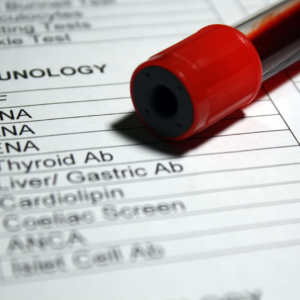(*NONE OF THIS IS MEANT TO BE MEDICALLY DIAGNOSITC. THIS IS FOR EDUCATIONAL PURPOSES ONLY. IF YOU FEEL LIKE YOU HAVE ANY OF THESE SYMPTOMS, PLEASE CONTACT YOUR MEDICAL PROFESSIONAL*)
I can’t tell you how many times I’ve heard or read some variation of the question:
“Why are my hormones all over the place?”
Many of us feel like our hormones are in complete chaos, and causing all sorts of problems in our body.
Believe me, I’ve felt that way too.
My goal in doing this is to educate and empower. I want you to understand what’s going on in your body, to have the information you need to make decisions or choices that you need to make, and to be able to know what changes to make to feel better.
Don’t worry, I’m not going to teach you about every single hormone in your body.
I am not an endocrinologist!
But I will teach you about the ones to watch out for, what to be aware of, and what you have the power to work on yourself!
The good news is that the approaches to work on for most of these are almost exactly the same! You’ll see why when we get into the details.
Thyroid Hormones
The thyroid is an organ in the neck that is responsible for regulating your metabolism. And while that sounds “simple”, it’s most certainly not simple. It basically turns the energy in your body up, or down.
There are actually several thyroid hormones involved in the thyroid process overall, but here is what happens when your thyroid isn’t doing what it’s supposed to be doing.

Hypothyroidism
If your thyroid is slow (which is also known as hypothyroid), you might notice the following symptoms:
- Feeling cold all the time or very sensitive to cold
- Constipation
- Tired/fatigued
- Frequently sick
- Weight gain
- Muscle aches/cramps
- Depression
- Slow movements or thoughts
- Slow heart rate
- Dry hair, brittle nails
Hyperthyroidism
If your thyroid is overactive (also known as hyperthyroidism), you might notice the following symptoms:
- Fatigue (yes, this can be a symptom in both an under and overactive thyroid)
- Weight loss
- Frequent bowel movements
- Increased appetite
- Body temperature running on the hotter side, feeling warm much of the time
- Racing thoughts
- Racing heart rate
- Nervousness
- Hyperactivity
- Increased perspiration
- Swollen, red, bulging eyes (this is called exophthalamos and is tied to a very specific cause of hypothyroidism)
Both states can interfere with sleep!
Blood Work
The way to diagnose thyroid conditions is through a blood test.
TSH – also known as thyroid stimulating hormone, this is the baseline test for thyroid function
Free T4
Free T3
Antibodies – there are two types of antibodies associated with the thyroid that can be screened for. High levels of these present can mean there is an autoimmune component to the thyroid disorder.
Most doctors will only test for TSH. There are complicated reasons for this but getting a comprehensive picture is always in your best interest. So, if you have the option to test for all of these, definitely take it!
Another thing – it isn’t uncommon to notice symptoms of hyper or hypothyroid, have your blood work tested, and have everything come back completely normal. This can make people feel really unsettled sometime. They don’t feel well, but everything looks “normal”. I promise, the symptoms that you’re feeling is real. Sometimes lab work needs to be re-run. Sometimes more in depth lab work needs to be run. And sometimes you might need a second opinion.

How Does The Thyroid Interact With Other Hormones?
I’ve mentioned previously that all of these wonderful hormones are connected! And the thyroid is a very common link. It does seem to be susceptible to influence from a variety of hormones. Here are a few examples:
- High estrogen can cause hypothyroidism
- Low progesterone can cause hypothyroidism
- High cortisol (a.k.a. high stress) can cause hypothyroidism
There are many other things in our environment that can disrupt thyroid function:
- Some nutritional deficiencies
- Some environmental toxicities
- Food sensitivities – there does seem to be a link between some thyroid autoimmune disorders and gluten sensitivity or celiac disease, although it’s possible other food sensitivities might be connected as well.
- Not enough iodine in the diet
How to Optimize Thyroid Hormones
- Optimize estrogen & progesterone – I have dedicated blogs (here for estrogen) (here for progesterone) and videos (here for estrogen) (here for progesterone) about those hormones specifically if you’d like to learn more.
- Avoid/limit your exposure to heavy metals – this can be very job/life/house/site specific, but one of the things you can do is have your water tested to ensure it doesn’t contain any heavy metals.
- Iodine – you want to make sure your daily intake of iodine is at a good level. In recent years many of us got iodine from iodized table salt. With that kind of going out of favor towards more of the sea salt, there does tend to be less iodine in it. The best sources of iodine are seaweed, so see if you can sneak some of those into your diet.
- Avoid your food sensitivities. This might not be something you’re aware of, but if you are aware of foods your body reacts to, make sure you don’t overdo it on those foods.
- Supplements – there are supplements that can optimize your thyroid function, but these are best recommended by a healthcare practitioner who has a thorough understanding of your symptoms
- Medication – there are some situations in thyroid conditions where medication will be a wonderful option
- Stress management – this is actually a recommendation I make for all of the hormones, but the thyroid is particular sensitive to stress. I had a patient many years ago when I was practicing as an ND who lost her partner, and that level of stress was enough to trigger a complete shift in her thyroid function. She ended up on thyroid medication as a result of that stressful event. I’m not saying that all stressful events will cause your thyroid to stop functioning, but keeping those stress levels in check will absolutely help to optimize your thyroid.
General Recommendations
And like I keep saying in all of my other blogs, all of my global recommendations apply to the thyroid as well.
- Daily exercise
- Good sleep
- Blood sugar regulation
- Increase vegetable intake
- Increase water intake
- Focus on including healthy fats in your diet
- Stress management
Hormones, and thyroid hormones in particular, can feel really overwhelming. And they can be very complicated.
But the best way to get them optimized is to work on the things I just talked about – stress, sleep, eating food that fuels you, and moving every day.
And if you need help with the sleep, head on over here to check out my free on-demand workshop: Secrets to Sleeping Well (https://bit.ly/3UoqxXh)!
